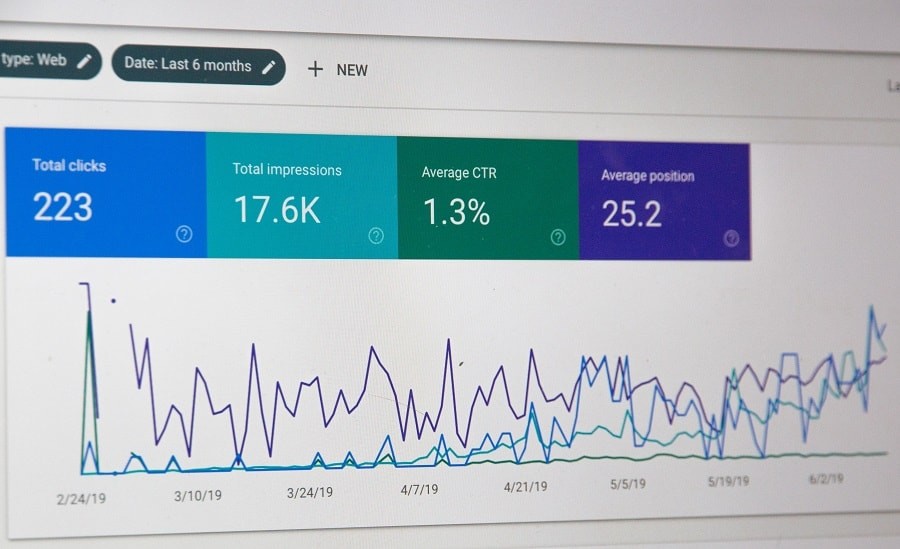You’ve made every effort to improve your Google ranking. You’ve studied algorithms, read up on how to leverage your Google smarts and researched keywords both short and long-tail ad nauseum.
And yet, your rankings are suddenly tanking. Why? Because in Google’s unending attempt to provide the best user experience, they are constantly updating (actually, some might argue they are actually outdating) their algorithms to outsmart the Google savvy content whizzes. We’re talking thousands of updates a year.
If you’re out there like us, you know that there are many algorithms that have become historically emblazoned on your content team’s mind. Old favourites might include Panda, Penguin and Florida.
But there are also thousands of mini updates that are not as well-known and these are the ones that will catch you every time.
What’s with All the Changes Anyway?

It can start to feel a little harassing when the algorithms just keep changing. It’s almost like being bullied in a subtle way. Like Google is purposefully trying to keep you from sitting at the SEO experts’ cool table.
Just keep in mind it’s all for the good of the user, which in turn means the good for your customer. Remember, there’s a point to Google’s madness. They want users to find fast, relevant content for every one of their searches.
If people who tend to look for black hat tactics figure out legit ways to use algorithms, then Google isn’t doing their job. They have to beat the odds of sending people to bad content.
So how the heck are you supposed to know what’s going on? Get in the know with these five smart ways to track Google algorithm updates.
Ways To Track Google Algorithm Updates
1. Google Webmaster Central Blog
Kind of obvious, but not for everyone. This blog can be a bit too detailed and lead to confusion. Sometimes it’s better to look for people who have already read through it, get it, and can regurgitate it in a more user-friendly manner.
However, if you consider yourself pretty savvy, and not even overly savvy, this might be the perfect resource for 100 percent truth and clarify what’s going on.
2. SEO Experts

If you find you are going crazy trying to follow along with Google, instead you can focus on SEO experts. They have made a living off of knowing what’s going on, so they work hard to make sure they stand out in the SEO community.
These guys are geeks extraordinaire who love this stuff and love letting you know how smart they are.
Whether it’s through a blog, tweets or newsletters, here’s a solid list of SEO smarty pants:
- Techwyse: TechWyse tries to provide as much info as possible on SEO in user-friendly bites that are easy to digest.
- Good Old Neil: Neil Patel is the go to for extremely detailed info about all things content, digital marketing and SEO based. He has a blog that often provides step by step instructions on anything to do with digital marketing. He can even be caught on podcasts, often as a guest.
- Google dudes like Danny Sullivan @dannysullivan or @searchliaison and John Mueller @JohnMu.
- Barry Schwartz @rustybrick regularly reports on Google updates at Search Engine Roundtable but sometimes you’ve got to sort through the mist to get to the point.
- Marie Haynes @Marie_Haynes shares info and insights about updates both on Twitter and her blog.
- Glenn Gabe @glenngabe watches for disturbances and reports them on Twitter and GSQi blog.
- Moz Blog: These guys are SEO kings and will provide as much info as you need on all things SEO and Google-based.
- Convince & Convert: Just being in the content business means you should be paying attention to these guys.
Don’t be afraid to search up things SEO related regularly. It’s the best way to learn and keep up with not just Google algorithms but buzz in the industry that could affect your content marketing strategy. Hiring a professional seo company would be the best way to increase your rankings without having to worry about learning SEO yourself.
3. Confirm Rumors
It’s easy to get nervous when you hear murmurings about new updates. It can be tempting to jump on the rumour bandwagon without checking to see if the rumours are true. It might seem you’re in on things when you bite at every whisper that Google has “done it again”.
But avoid temptation and head back to tip #1 to get confirmation from the horse’s mouth. This will save a lot of time and aggravation. Once confirmed, you can then head on down to tip #2 and look for insight on how to manage the new challenges.
4. Are You Missing Something?

Make sure you take advantage of tools (or services) to look for signs you are already on the downward spiral thanks to the latest sneaky Google updates:
- MozCast
- SEMrush Sensor
- Rank Ranger Rank Risk Index Tool
- Accuranker ‘Grump’ Rating
- Algoroo
- Advanced Web Rankings Google Algorithm Changes
- Panguin Tool
- CognitiveSEO Signals
Often tracking changes can be the first clue something has changed. If you don’t have the time or inclination to track this on your own, work with an SEO company to help.
From there you can investigate to see if there were, in fact, any algorithm updates and be ahead of the game to start changing your SEO strategy if need be.
5. Change and Monitor
Part of the following updates is testing your theory on how to overcome them. When you find new info about SEO, check your tracking tools just in case you missed something. If you are seeing dips and signs of SEO malaise, choose one area of your site to test new SEO theories.
This way you can:
- Confirm the updates have taken place and
- Confirm your theories on overcoming the new algorithms work
Once all is confirmed, you can safely continue on with a complete SEO overhaul if it makes sense.
The bottom line has always been and always will be that original, informative, engaging and useful content will rule the top rankings. This goes doubly when it comes to pleasing your customers and finding new prospects to keep your sales pipeline (or funnel if you prefer) active.

